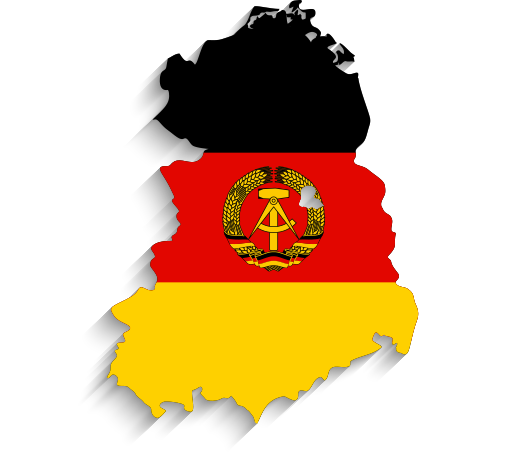(Grant Agreement n. 669194)
In a country where a small circle of party-state figures monopolised economic decision-making, the role played by foreign trade organisations in the economic debate is hard to measure. The Chamber of Commerce played an important role in East Germany’s struggle for international recognition. It concluded economic agreements with its Western counterparts, and the Chamber’s foreign representations served as substitutes for diplomatic missions. Naturally, the Chamber’s actions followed the policy aims and guidelines of the Socialist Unity Party of Germany (Sozialistische Einheitspartei Deutschlands or SED) and were largely instructed and controlled by the responsible ministries. After the GDR gained international recognition and established diplomatic relations and representations abroad in the early 1970s, the importance of the Chamber of Commerce declined. Its activities remained a part of the economic relations with the West but became more representative in character. In the debate about the GDR’s relations with the West and the European Economic Community (EEC) in particular, the Chamber of Commerce played no visible role.
The relevance of the various East German foreign trade companies was also limited. They played an important role in day-to-day business in trade with the West and were the ones which immediately felt the repercussions of new EEC import policies. However, none of these companies left an imprint on East German policy towards the West. All the major negotiations on trade were conducted by the Ministry of Foreign Trade (particularly by Deputy Foreign Trade Minister Gerhard Beil) and in their final stages even by the SED economic secretary Günter Mittag. More delicate trade operations were conducted by the foreign trade enterprises of the Commercial Coordination division (Bereich Kommerzielle Koordinierung or KoKo), headed by Alexander Schalck-Golodkowski. For example, the most prominent KoKo foreign trade enterprise Intrac contributed much to the GDR’s struggle to stay solvent in the early 1980s. The almost almighty Mittag presided over many of the SED’s economic bodies, such as the Economic Commission and the Balance of Payments Working Group. The Economic Commission was not a decision-making body, but it served as Mittag’s tool for the top-down management of the economy. Reducing imports from the West was a permanent issue on the agenda of all the economic bodies, but sometimes the only path to reach this goal was further investment in industrial sectors that demanded imports to fully function. There were basic economic reasons for the West’s increasing share in the GDR’s foreign trade. The USSR and the other members of the Council for Mutual Economic Assistance (CMEA) were not willing or able to provide everything the industrialised East German economy needed to promote its competitiveness. Hence, the top-down implementation of import reduction in the plan failed due to the needs and obstinacy of various industrial sectors which kept buying from the West. By acting in this way, businesses and foreign trade companies made their indirect contribution to the economic debates.
When the GDR increasingly faced EEC anti-dumping procedures in the early 1980s, it became the task of the foreign trade companies to establish short term technical contacts with the EEC Commission in order to prevent economic losses. However, they did not develop a visible agency in shaping or changing the East German policy towards the EEC.
* This text summarises some of the research findings of PanEur1970s team member Maximilian Graf, which are published as a chapter in PanEur1970s’ academic edited book. For a link to the e-book, please see the GDR’s “Overview” webpage of this map.
